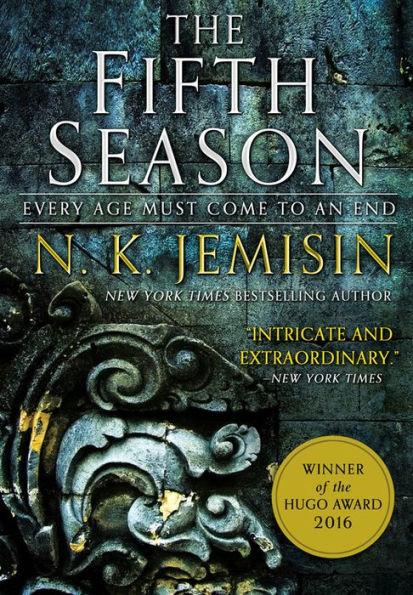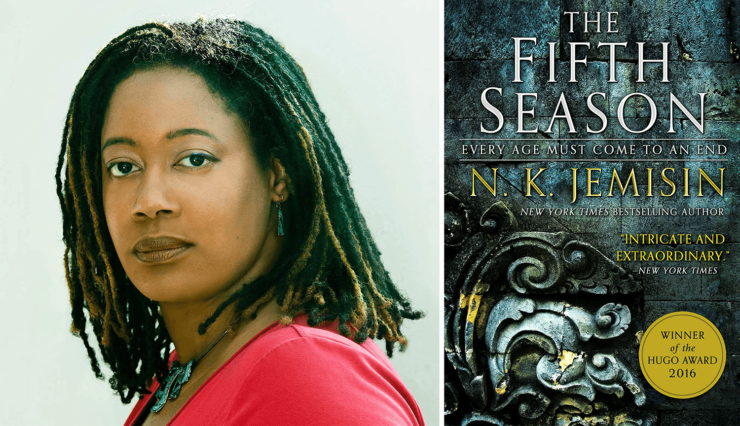The Socially Distant Tor.com Read-Along continues! We recently wrapped up Katherine Addison’s fabulous steampunk/fantasy/goblin bildungsroman, The Goblin Emperor, but there are still more excellent books in our To Be Read stacks. Next week we’re excited to dig into N. K. Jemisin’s Hugo Award-winning tale of magic and climate upheaval, The Fifth Season! We’ll be reading and discussing the novel over the course of the next six weeks, and you can follow along with us on Twitter using the hashtag #TorDotReads.
When we first started the Read-Along three months ago, many of us were settling into our homes to stop the spread of the Coronavirus; reading together made staying inside more fun, and helped foster a sense of community in the midst of isolation. We’re grateful for each of you who made the initial journey with us, and we’re looking forward to heading into a new fantasy realm with our latest read.
The Fifth Season, the first entry in the “Broken Earth” series, is a multi-generational tale that unfolds on a planet with a single continent, called the Stillness by its people, who fear a time called “the Fifth Season” when the planet will undergo a cataclysmic shift in its climate. The story follows three female “orogenes”—people who can control the energies of natural elements, including the ground and temperature—who are feared, oppressed, and weaponized for their ability to manipulate the land and weather around them.
Here’s the plan: If you already have a copy, great! If you need a copy, you can find one at the links below, or order from your local indie bookshop if it’s making deliveries—here’s a handy spreadsheet of indie stores, so you can find one near you!
We’ll all meet on Twitter on Wednesday, June 3rd under the hashtag #TorDotReads to discuss the opening chapters, from the Prologue, “you are here” through Chapter 5, “you’re not alone.” From there we’ll read about five chapters each week, and check in every Wednesday to talk about the power systems, structural racism, and the weather on Stillness.
And remember, many of us are going into this as a first time read, so please, NO SPOILERS in the Twitter threads!
Hope to see you soon!
Buy the Book


The Fifth Season










